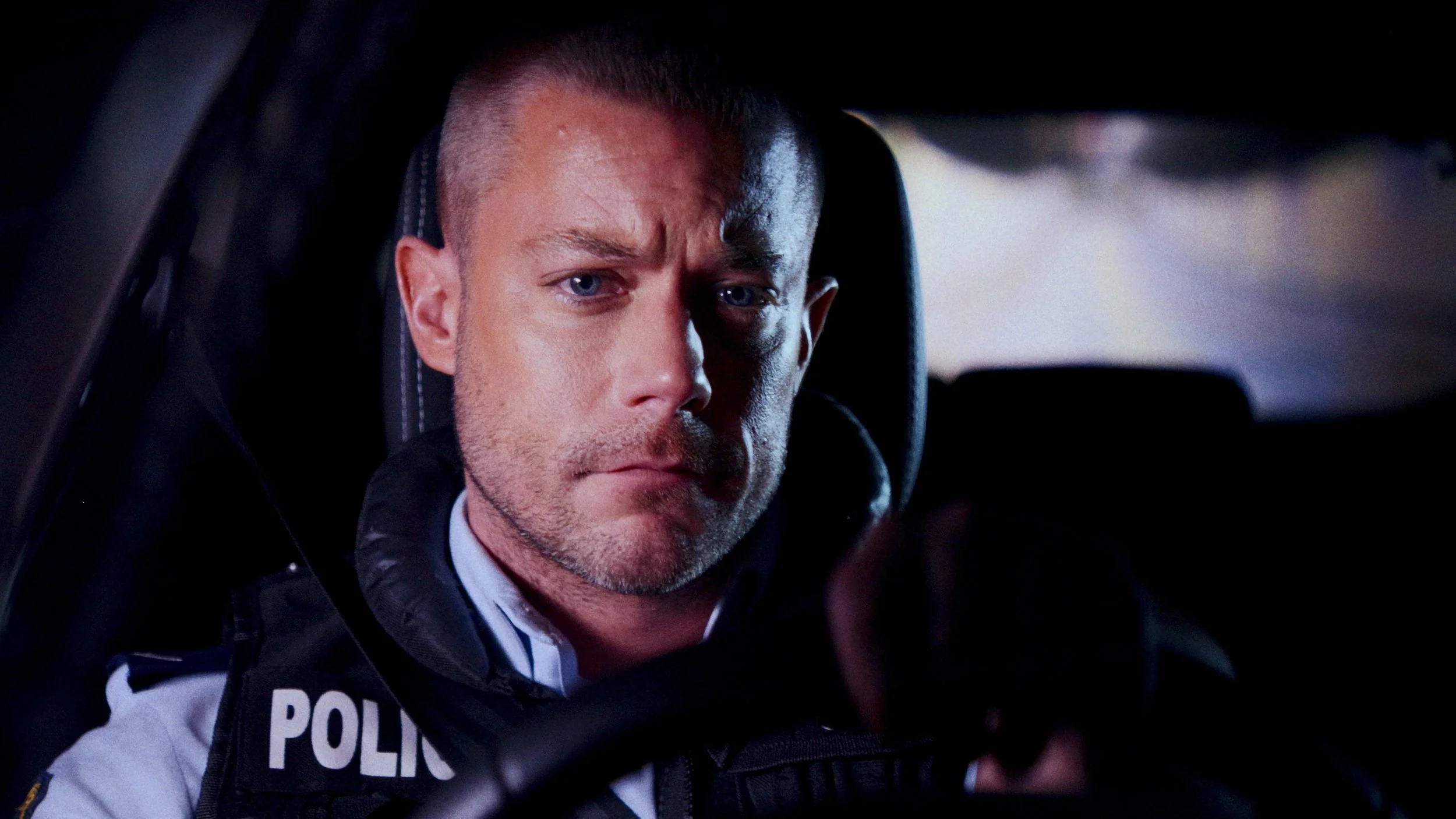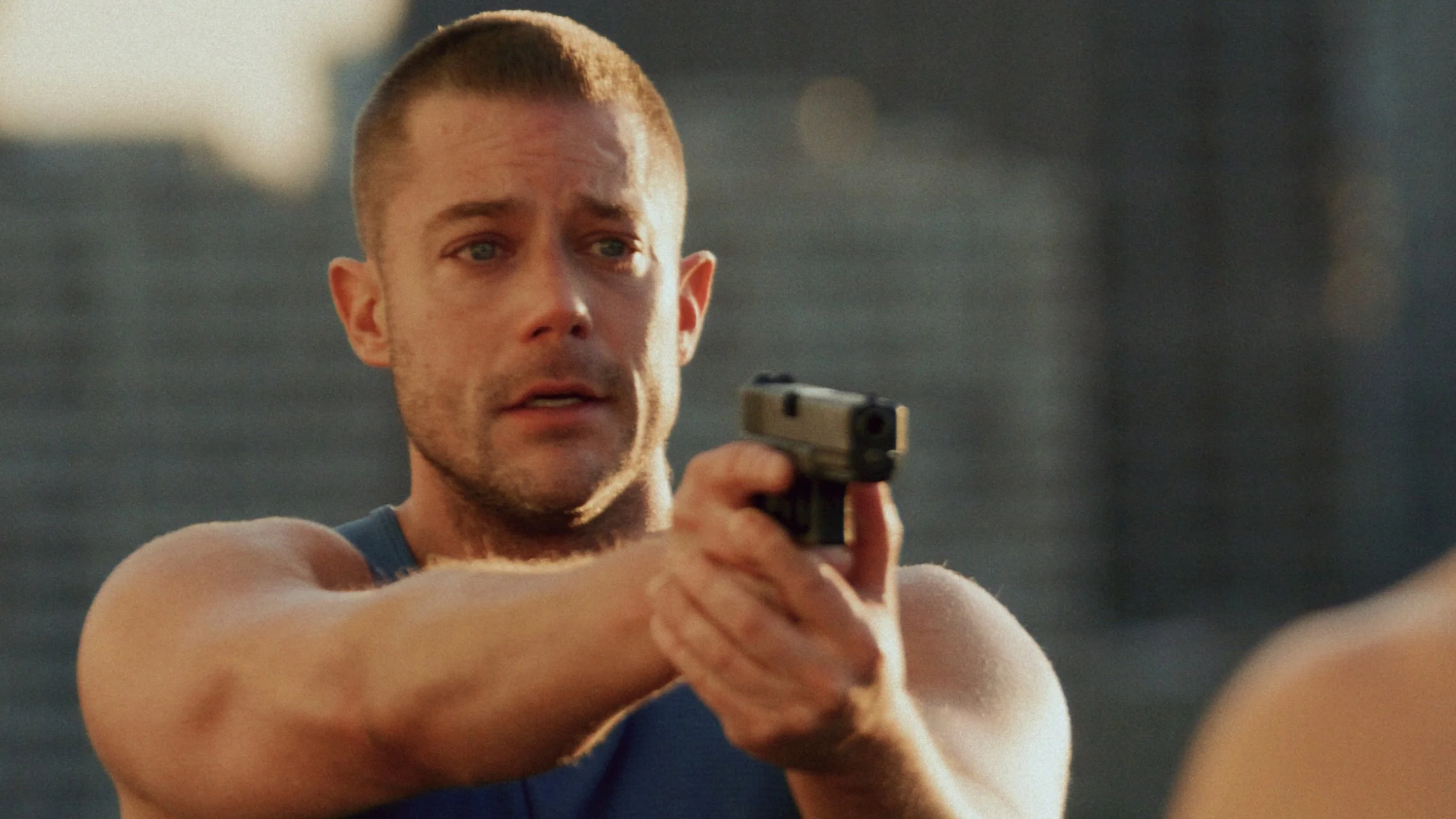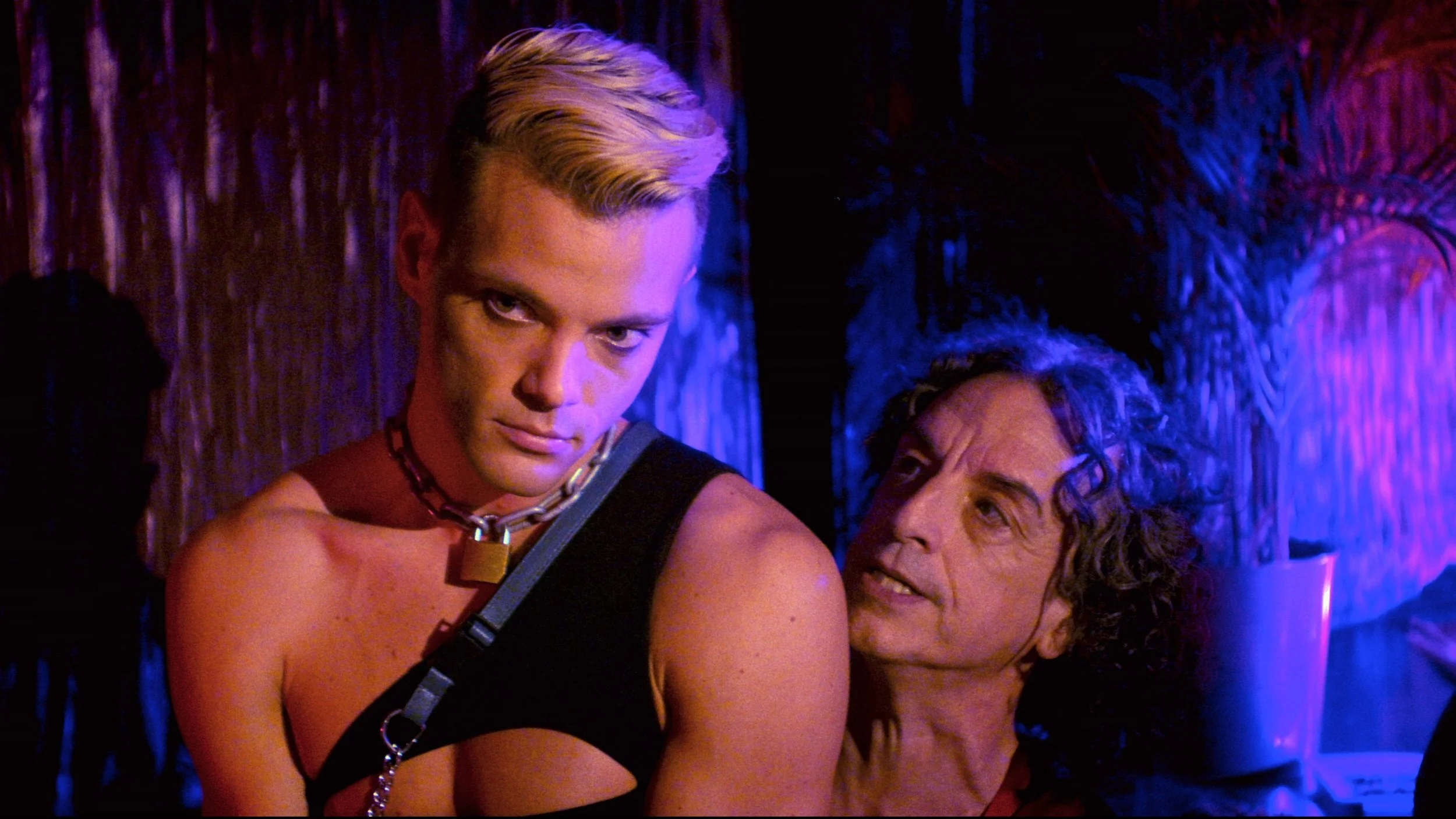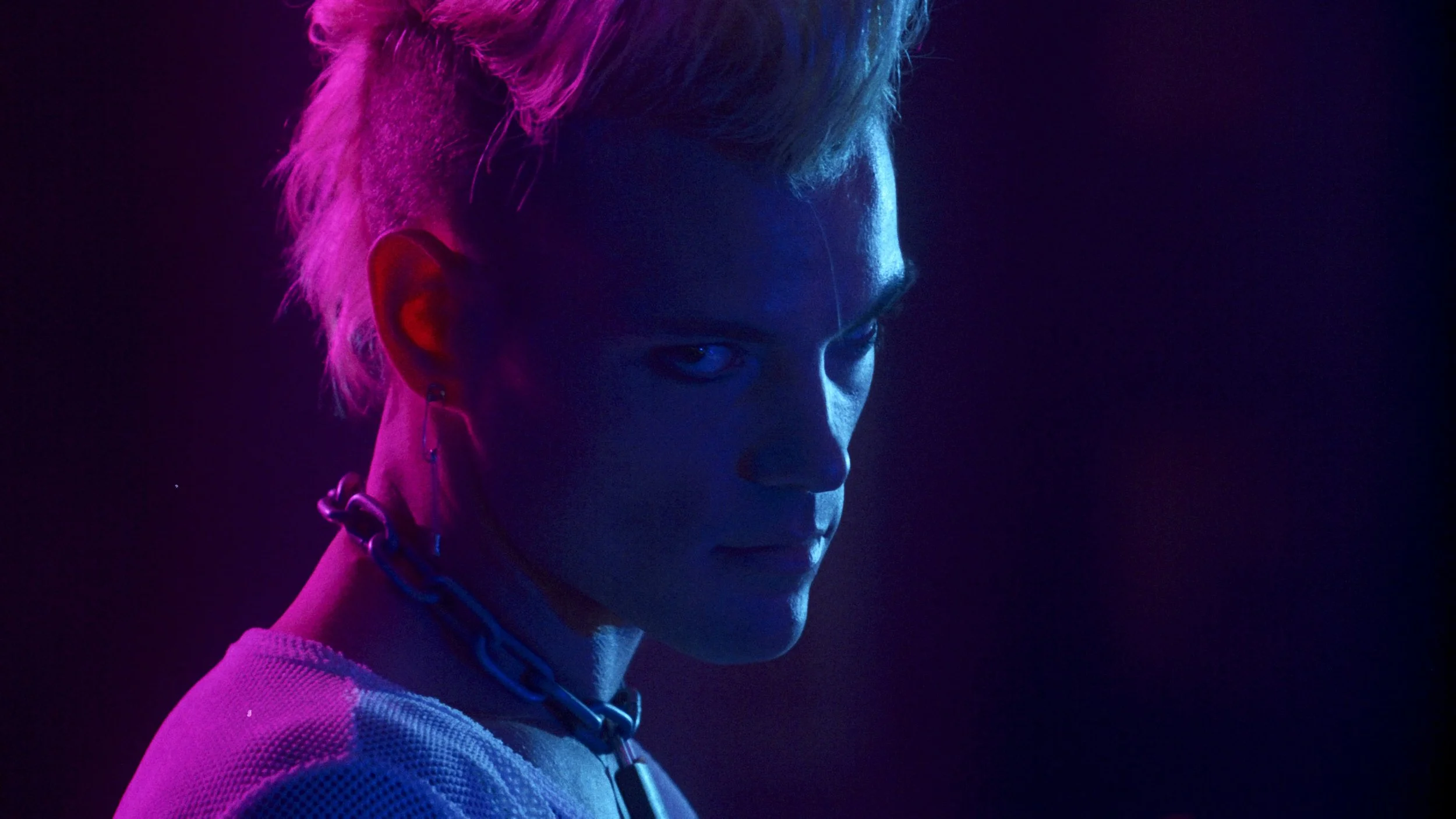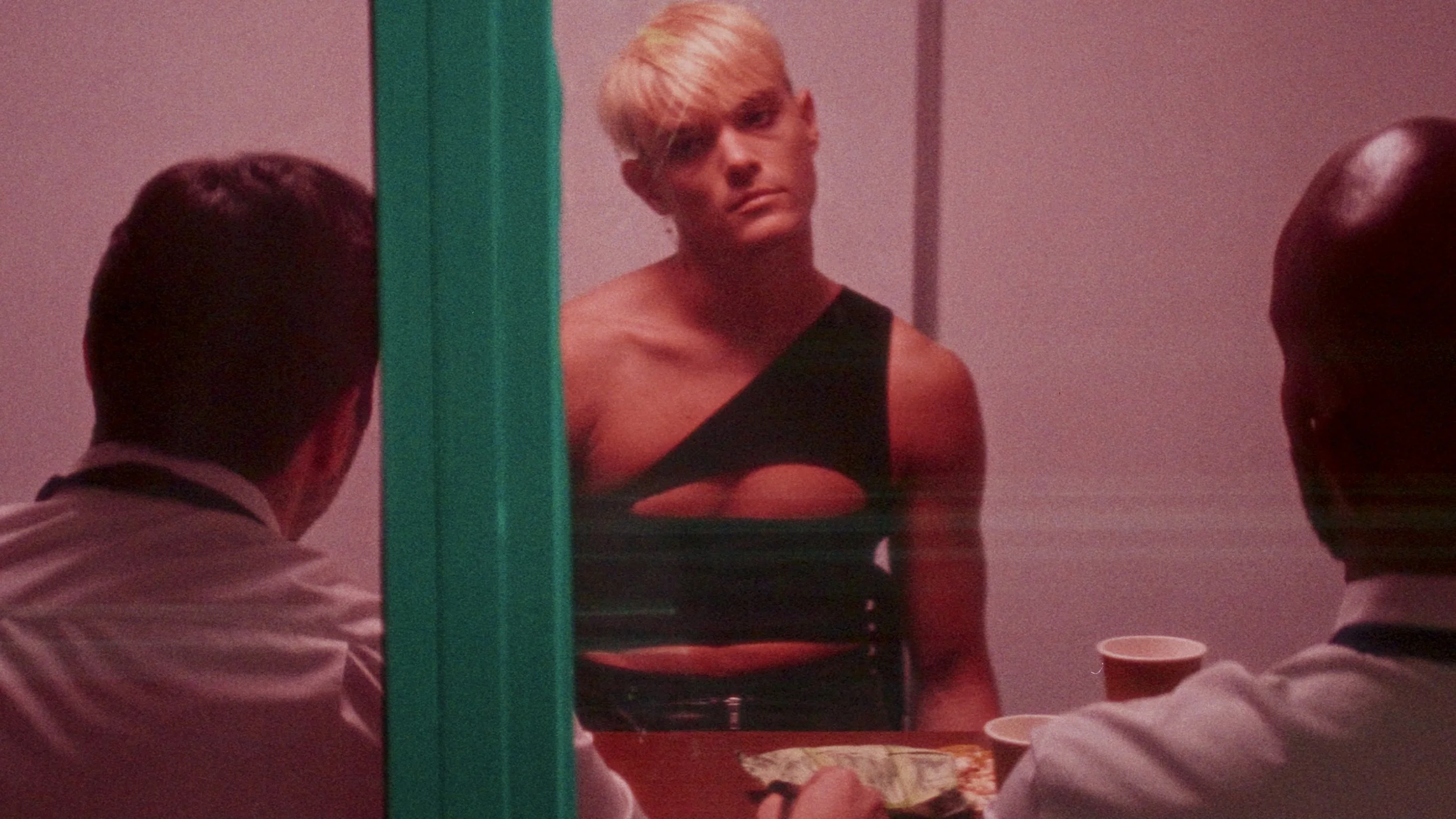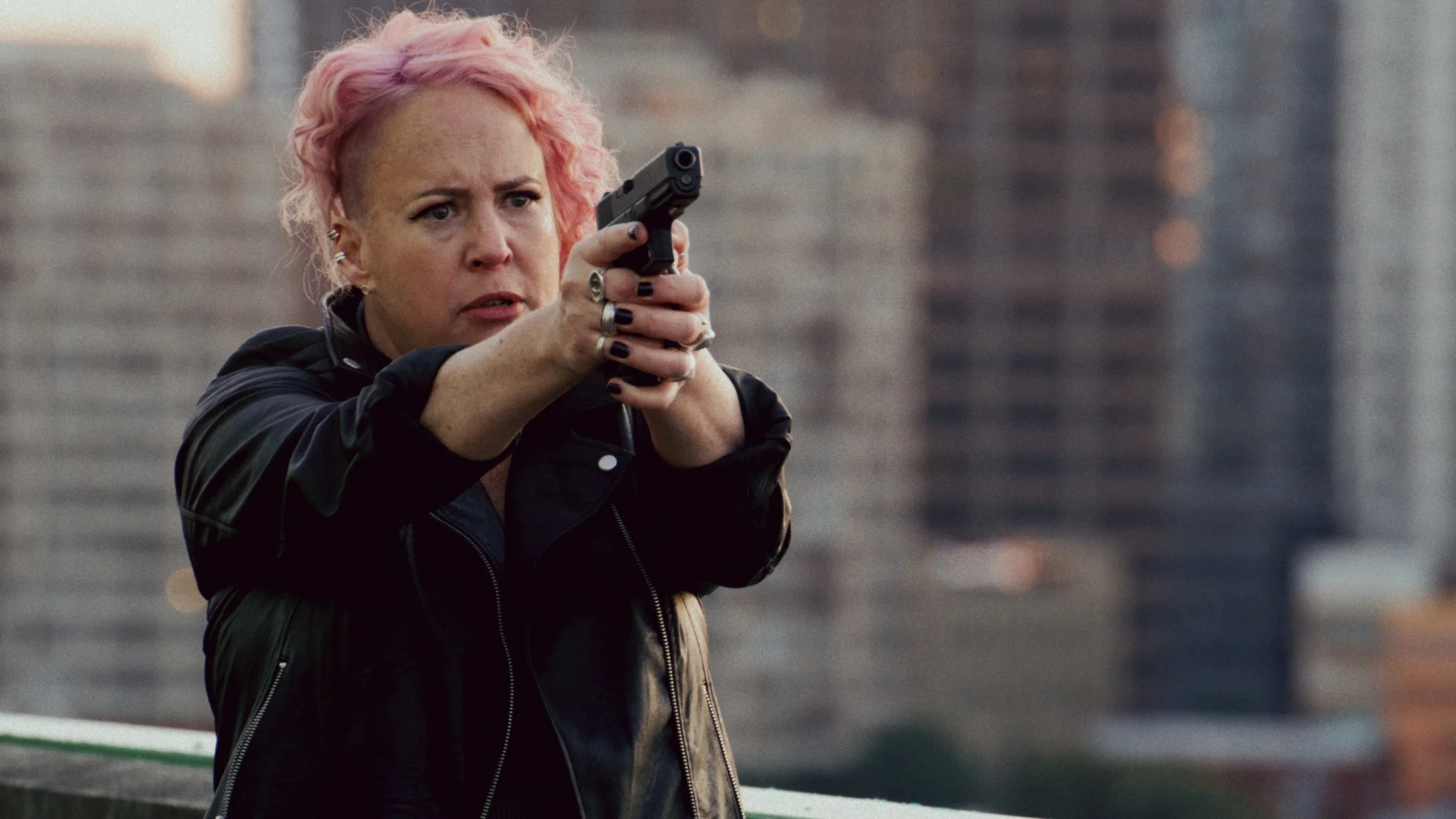Dean Francis’s Body Blow arrives with a clear purpose: to reclaim the erotic thriller and inject it with unapologetically queer energy. Premiering at Fantastic Fest 2025, the film delivers a neon-noir crime saga that feels both like a throwback to the sweaty, stylized thrillers of the 1990s and a bold reimagining for today.
At its center is Aiden (Tim Pocock), a disgraced undercover cop battling sex addiction who finds himself pulled into Sydney’s queer underworld. His dangerous attraction to Cody (Tom Rodgers), a drug-addled bartender and sex worker, entangles him with Fat Frankie (Paul Capsis), a drag queen mob boss whose murder sparks a spiraling web of betrayal, desire, and survival.
Francis leans into the pulpy archetypes of noir—the cop, the femme fatale, the underworld boss, while twisting them through a queer lens. The result is something that feels knowingly referential yet distinctly modern. As Francis explained in our interview, the goal was to honor the likes of Body Heat and Basic Instinct without replicating their heteronormative framework. That balance pays off.
Tom Rodgers is perfectly cast as Cody, a magnetic mix of danger and vulnerability. His chemistry with Pocock grounds the film, even as events spiral into heightened, operatic territory. Pocock himself is almost unrecognizable, fully committing to Aiden’s fractured psyche while also contributing original piano compositions that blur the line between score and character psychology. The music, in fact, is one of the film’s greatest strengths; keyboard-driven cues and sultry saxophone swells arrive right on cue whenever a crime scene or a moment of erotic tension emerges, locking the audience into the mood.
Stylistically, Body Blow wears its influences proudly. Imagine Streets of Fire refracted through a queer lens, neon signs and fog machines painting Sydney’s backstreets as both gritty and dreamlike. Francis and cinematographer Franc Biffone stretch every dollar, filling the frame with extras and lived-in details that make the world feel expansive, even though the film was shot lean. The result is a movie that looks far more expensive than it was, a testament to clever filmmaking and deliberate design.
The sex scenes are another standout. They’re unflinchingly real, sweaty, and intimate in a way that feels authentic rather than exploitative. As someone outside the community, I found myself struck by how raw and convincing they were; they carry the same purpose and weight as the action scenes, woven into the narrative rather than feeling gratuitous.
The city itself becomes a character. Francis avoids the glossy postcard shots of Sydney, instead diving into its grit and nightlife, giving the sense of parallel “towns”—queer and straight—that collide at every turn. The actors, too, appear lived-in, as though they’ve been part of this world long before the cameras rolled.
Ultimately, Body Blow knows exactly what it is and embraces it without hesitation. Neon-soaked, sultry, dangerous, and defiantly queer, it honors its cinematic ancestors while carving out a space entirely its own. Dean Francis has crafted a sweaty, stylish neo-noir that reclaims the erotic thriller with heart, grit, and modern sensibility. It’s one hell of a night out at the cinema—and proof the genre still has plenty of fire left in it.
Jessie Hobson

